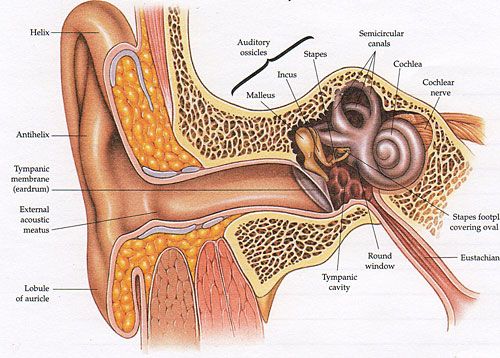Friday 25 of April 2014, Studio Mutin, Brussels, Belgium.
Participants: Alecsandra Girbea, Aude Delmas, Kotomi Nishiwaki, Rhaissa D'haene, Eva Maes and Anouk Llaurens.
Eva Maes (morning session) : Through hands-on work, movement exploration and other anatomical insights the developmental stages of the senses will be explored. Continuing the explorations of the first three workshops (skin in relation to the sense of touch, vestibular structures in relation to proprioception, the sense of taste and smell), In the fourth workshop we will be working around the sense of hearing. Exploring (in Bonnie's words) how receptivity of outer vibrations and tone is closely associated with inner vibrations and tone, and how auditory and vestibular perceptions establishes an underlying framework for visual discriminations. Relational and compositional aspects of the senses will be encountered through stillness, movement and dance. For more info on Body-Mind Centering:http://evamaes.wordpress.com/; http://www.bodymindcentering.com/; https://bmcassociation.org/
Audios documents about Eva's session:
01- Intro documentation project
02- Presentation circle
03 - Development of the senses; Exploring perception; "Senses helps us move".
04 - Program of the day: Part 1 warm up guided progresssion from yielding to touch and sense of mouvement until hearing. "Support precedes movement". Part 2 , exploration with a partner.
05 - Questions and comments : Frustration - Imagination
06 - Anatomical informations about nasal cavities and inner ear.
07 - Feedbacks , echos, comments after exploration 1: Alecsandra, Rhaissa, Kotomi.
08 - About skin - Eva Maes
09 - Habits and satisfaction - Anouk and Eva
10 - Exploration 2 - Eva maes: cellular touch
11 - Anatomical informations about inner ear and equilibrium aparatus
12 - Conclusion : Staying with yourself
Anouk Llaurens (afternoon session): For this fourth workshop we will go on with the practice of “the two sides of touch”, using “environments” to get to know ourselves and ourselves to get to know “environments”. Tasting our sensations and measuring the lifespan of our experiences will support the emergence of compositions in time and space. We will work in duet and use vocal calls to give direct feedback to our partner. Writing and drawing will be used as reflexive tools for documenting, integrating and sharing our experience with the others.
Audio documents about Anouk's session:
01 - Introduction to Lisa Nelson work : How the senses dialogue with one another; JJ Gibson theory of affordance.
"The affordances of the environment are what it offers the animal, what it provoques or furnishes, either for good or ill.The verb 'to afford'is found in the dictionary, the noun 'affordance' is not. I have made it up. I mean by it something that refers both the environment and the animal in a way that no existing term does. it imply the complementarity of the animal and the environment. (...) An important fact about the affordances of the environment is that they are in a sense, objective, real and physical unlike values and meaning, wich are often supposed to be subjective, phenomenal and mental. But, actually, an affordance cut across the dichotomy of subjective-objective and helps us to understand its inadequacy. It is equaly a fact of the environment and a part of behaviour.It is both physical yet neither. An affordance points both way, to the environment and to the observer. J. J Gibson, The senses considered as perceptual systems.
For more info about Lisa Nelson work: http://www.idocde.net/idocs/427
02 - What is an environment for you ? Alecsandra, Aude, Kotomi, Rhaissa, Eva, Anouk.
03 - Exploration 1: Use the environment to give sensation to yourself. You can use the call OPEN (eyes open) and CLOSED (eyes closed). Call are only applied to yourself.
04 - Exploration 2: The two sides of touch, Environment and Explorer: explore the environement or use it to explore yourself. Function are defined to start with. Aftre a while, choose your function and your mode of touch. Follow your interest.
05 - Kotomi and Rhaissa's feedback : Extented time ; more is less / more is more
06 - Aude and Alecsandra's feedbacks : take the time for details; restrains; affection
07 - Eva's feedbacks : portraying - absorption in sensorial miss the motor.
08 - Anouk' s feedbacks : puzzle, fragmented memory.
09 - Conclusion : Importance to practice.
Note about the downloaded documents (audio, drawings and texts)
Audio coming from Eva Maes' session are first and Anouk Llaurens session second. Don't hesitate to scroll down to have access to them. Some are about the explorations proposed and other are feedbacks from participants. They are named so you can choose theme that call you. The feedbacks are individual testimonies of a collective experience. It is worth to listen to them. For Anouk ‘s framed feedback (sharing of documents), you have the possibility to simultaneously listen to the audio and look at the drawings that are presented in "order of appearance”: Kotomi, Rhaissa, Aude, Alecsandra, Eva, Anouk.
This co-teached workshop is fourth one of a series that investigates the spectrum of the senses (see date below). We want to offer an in-depth exploration, based on the approach of Body-Mind Centering® as well as on Lisa Nelson “Tuning Scores”. It is a prolongation of an already existing relationship, as one important support for the development of Lisa Nelson work were her meetings with Bonnie Bainbridge Cohen in the 70. On the other hand, Lisa Nelson, being the main editor of Cohen's 'Sensing Feeling Action', has been an invaluable force to help articulating and making visible 'BMC approach'. Both Body-Mind Centering as ‘Tuning Scores’ are embedded in a broader scientific and artistic research oriented to highlight our physical base, for the sake of exploration, but also with the possible consequence of opening new avenues for improvisation, composition, inspiration....
To build a sense of continuity, a documentation of the workshops based on audio recordings, drawings, images, anatomical documents and referential texts, will unfold on the IDOCDE web site (International Documentation Of Contemporary Dance Education).












